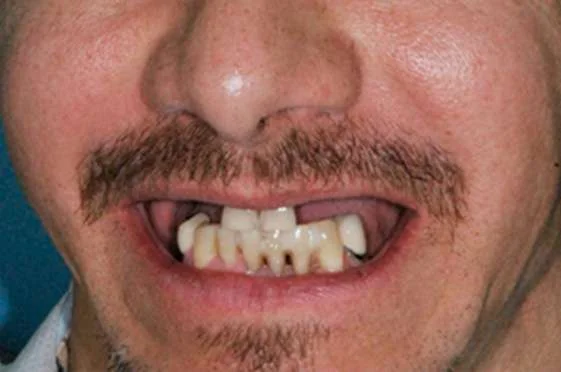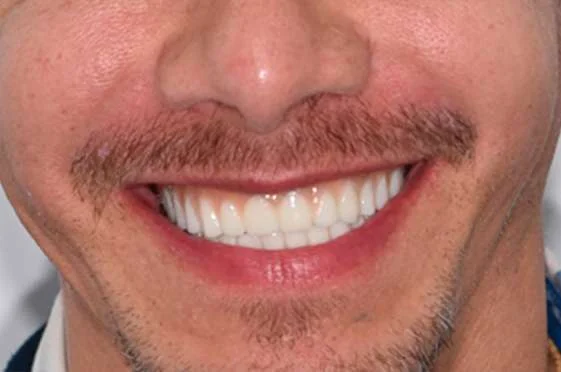
About Basal Implants
Cosmetic dentistry has come a long way, especially in dental implants.
At The Dental Cure, we’re proud to offer an innovative approach to dental implantation that removes the need for bone augmentation, even in tough cases.
Our basal implants, made from biocompatible titanium alloy, feature a seamless design where the implant and abutment are one unit. Our dedicated dental experts ensure you get the best possible results, making us the provider of the best basal implants in Gurgaon.


Talk To A Dentist
DENTAL
CURE
WONDERING
WHAT IS BEST
FOR YOU?
Overview
Bone is made of an internal spongy or portion or cancellous that is covered with dense bone corticalis or layer. Each basal implant is put in at least two places in bone layer. The corticalis that are used for anchoring of the basal implants at the dental cure is highly mineralized along with the high rate of regeneration. This, in turn, ensures the incorporation of dental implants and enables their immediate loading. Basal implants differ from axial or crest implants in the manner of force distribution and in the manner of placing, however primarily by the planning as well as execution of the post-operative regime and prosthetic construction.
Design of implants Lateral basal implants, BOI® brand, with a large horizontal plane and decreased reduced vertical components Basal compression screws ® with a thread for cortical penetration.
Lateral basal implants are placed from the lateral aspects or side of the jaw. Existing bone height for this should be up to 3mm. the cortical anchor makes for a guaranteed osseointegration and safe distribution.The dental Cure has dental surgeons who have expertise in performing this procedure with high success rate.
Screw Basal Implants are placed through the gum without making any kind of incision. Their placement is as similar as crest implant; however basal implants transfer pressure over cortical bone
Benefits of Basal Implants
Prosthesis are loaded immediately within 72 hours of the surgery
Most of these implants get support from the basal bone that are highly resistant resorption, just similar to the conventional implants which take support from the crestal bone. Basal cortical bone has a much stable and faster repairing capacity.
Single piece implantation technology minimizes the risk of failure of implants because of the interface problems between the connection that exist in traditional two and three piece implants.
It is a minimally invasive procedure even in the worst situations. The single piece screw type implants are easy to be inserted in a minimally invasive way – often minimum bone cutting and flapless. These implants are not only self-tapping but also condense bone at the time of the insertion of the implantation. Given that it is a minimally invasive procedure, it is associated with the minimum post-surgery edema and healing is quick and non-eventful.
BOOK AN APPOINTMENTWhat Our Customers Say About Dental Cure
Basal Implants Procedures
Basal implants, also known as cortical implants, are a type of dental implant that anchor into the dense bone. They are ideal for patients with insufficient bone density for traditional implants. Overview of the procedure:
1. Initial Consultation and Assessment
-
Medical Review and Exam:The dentist reviews your medical history and examines your mouth, using X-rays or scans to check your bone structure.
-
Personalized Plan:A treatment plan is made based on your specific needs, including the number and placement of implants.
2. Pre-Surgical Preparations
-
Good Oral Hygiene:Maintaining excellent oral hygiene is crucial to reduce infection risks.
-
Anesthesia:Local anesthesia or sedation is used to keep you comfortable during the procedure.
3. Surgical Procedure
-
Gum Incision:A small cut is made in your gum to expose the bone.
-
Site Preparation:The dentist drills into the dense bone to prepare for the implant.
-
Implant Placement:The basal implants are inserted into the prepared sites.
-
Temporary Teeth:Temporary prosthetic teeth are often attached right after implant placement, so you can leave the clinic with functional teeth.
4. Post-Surgical Care
-
Pain Management:Medications are provided to manage pain and prevent infection.
-
Hygiene Tips:You’ll receive instructions on keeping your mouth clean.
-
Diet:A soft diet is recommended to protect the new implants.
5. Healing and Osseointegration
-
Regular Check-Ups:Follow-up visits ensure the implants are healing properly.
-
Temporary Adjustments:The temporary teeth may be adjusted as needed.
6. Final Prosthesis Placement
-
Healing Assessment:After a few months, once the implants have bonded with the bone, the temporary teeth are replaced with permanent ones.
-
Customization:The final teeth are custom-made for a perfect fit and look.
7. Long-Term Care and Maintenance
-
Routine Visits:Regular dental check-ups are essential to maintain implant health.
-
Ongoing Hygiene:Good oral hygiene practices ensure the longevity of your implants.
FAQs About Basal Implants
Basal implants, also known as cortical implants, are a type of dental implant that anchors into the dense, basal bone, providing stability even in cases with limited bone density.
Basal implants are ideal for patients with insufficient bone density or volume for traditional implants, as they utilize the dense cortical bone for support.
The procedure typically takes a few hours, but the exact time depends on the number of implants and the complexity of the case.
Local anesthesia or sedation is used to ensure comfort during the procedure. Post-surgery, any discomfort can be managed with prescribed pain medications.
Initial healing usually takes a few days, but full integration of the implants with the bone may take a few months. During this time, temporary teeth are often used.
A soft diet is recommended for the first few days after surgery. Gradually, you can return to a normal diet as healing progresses.
Maintain good oral hygiene by brushing and flossing regularly. Attend all follow-up appointments and have routine dental check-ups to ensure the implants stay healthy.
With proper care, basal implants can last many years, often a lifetime. Regular dental visits and good oral hygiene are crucial for their longevity.
Basal implants are particularly beneficial for patients with low bone density, as they offer immediate stability and can often be loaded with temporary teeth right after placement. However, the best option depends on individual cases.
As with any surgical procedure, there are risks of infection, implant failure, and complications related to anesthesia. However, these risks are minimal with proper care and a skilled dental surgeon.




